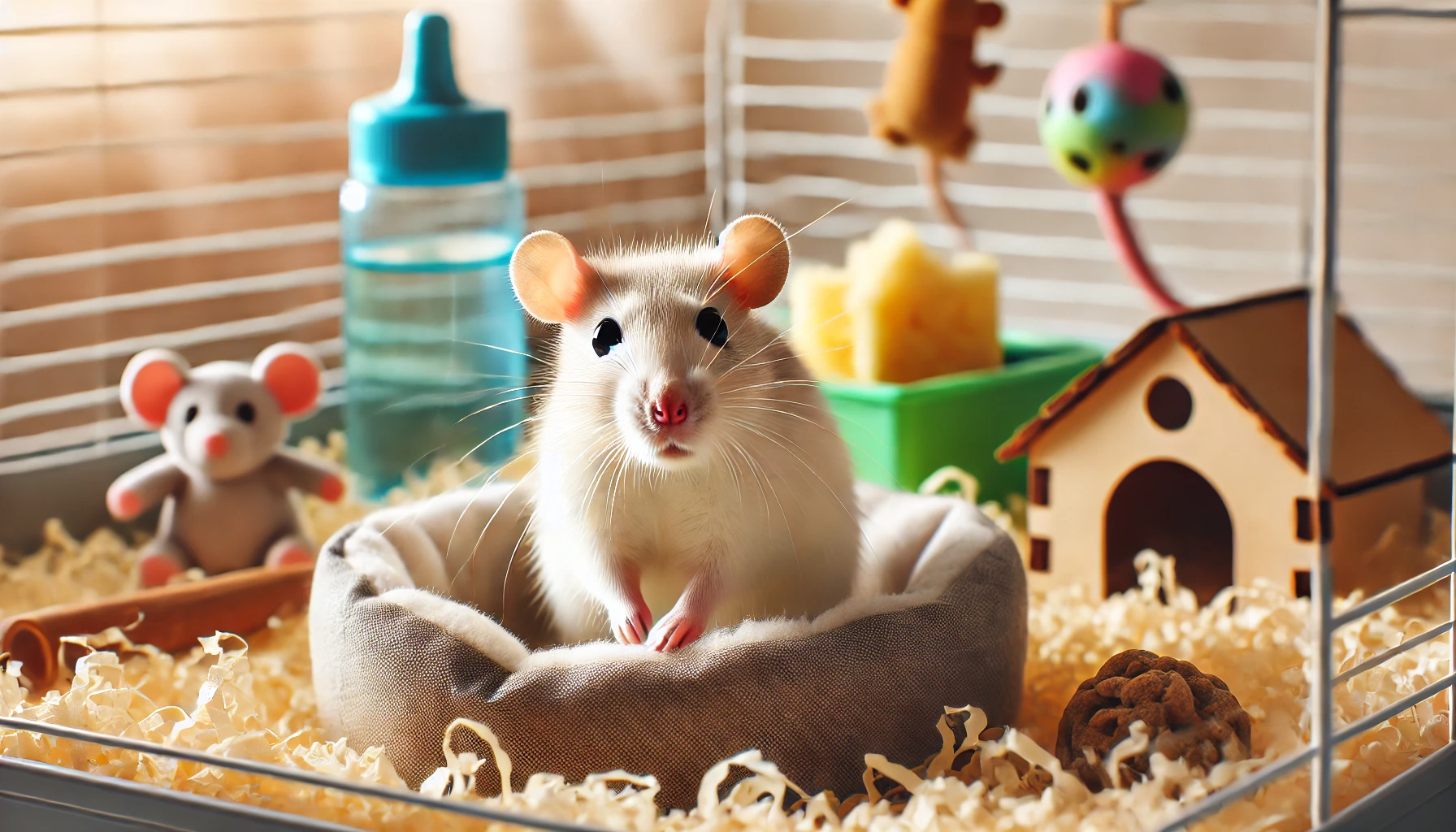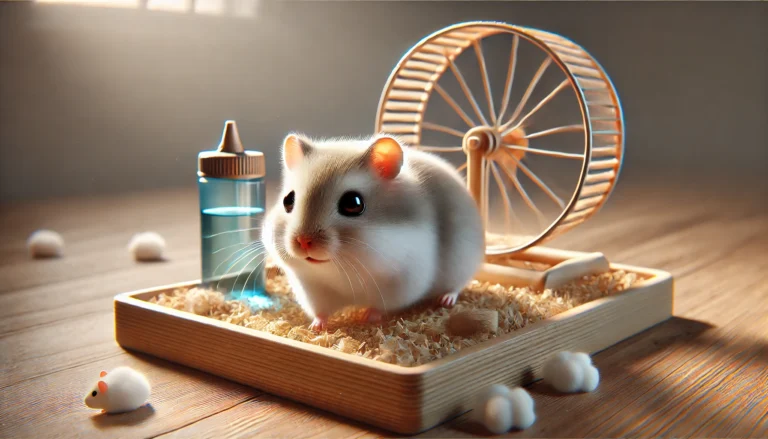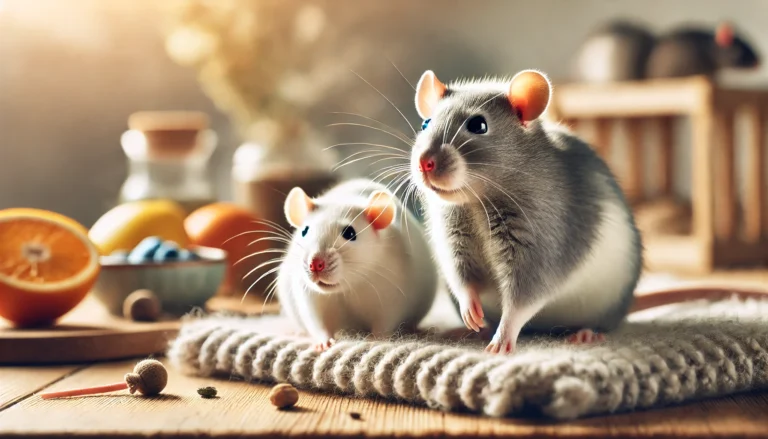How Long Do Rats Live? Amazing Guide on Rat Lifespan

How Long Do Rats Live? The amazing insights.
Rats are small, intelligent creatures that can make affectionate pets. Their lifespan varies based on their environment and care. Pet rats tend to live longer than wild ones because they have access to better food, healthcare, and protection. On the other hand, wild rats face predators, diseases, and harsh conditions that shorten their life expectancy.
Understanding how long rats live is essential for both pet owners and people dealing with rat infestations. This knowledge helps pet owners provide better care and manage expectations. For others, it highlights why rat populations thrive in certain areas despite the short lifespan of individual rats.
1. Average Lifespan of Rats
The lifespan of a rat depends largely on whether it lives in the wild or is kept as a pet. Pet rats generally live longer due to better living conditions, food, and healthcare. In contrast, wild rats often have short lives because they encounter predators, disease, and harsh environments.
- Pet Rats: On average, pet rats live 2 to 3 years, with some reaching up to 4 years with excellent care.
- Wild Rats: Wild rats usually live for 6 to 12 months due to natural threats. However, some individuals may survive for 1.5 years if they avoid predators and disease.
Different breeds of rats, like Fancy rats and Dumbo rats, typically have the same lifespan as other pet rats, but individual care makes a big difference in longevity.
2. Lifespan of Wild Rats
Wild rats live in unpredictable environments, which significantly shortens their lifespan. Most wild rats only survive 6 to 12 months due to exposure to predators, harsh weather, and limited food supply. Rats in urban areas may live slightly longer due to access to garbage, shelter, and fewer natural predators.

Factors That Shorten the Lifespan of Wild Rats:
- Predators: Cats, birds of prey, and snakes hunt rats frequently.
- Diseases: Rats are exposed to various diseases, like leptospirosis or parasites, which spread easily in unsanitary conditions.
- Poison and Traps: In cities, pest control efforts like poisons and traps often keep rat populations in check.
- Harsh Conditions: Wild rats face extreme weather and food scarcity, especially in rural areas or during colder seasons.
Even with these risks, rats reproduce quickly, allowing their populations to thrive. A female rat can have multiple litters in a year, ensuring the survival of the species.
3. Lifespan of Pet Rats
Pet rats live longer than their wild counterparts due to consistent care, protection from predators, and medical attention. The question which is circulating most “How Long Do Rats Live”? On average, pet rats have a lifespan of 2 to 3 years, with some living up to 4 years under optimal conditions.
Popular Pet Rat Breeds and Their Lifespan:
- Fancy Rats: The most common pet rats, with an average lifespan of 2 to 3 years.
- Dumbo Rats: Known for their large ears, they have a similar lifespan to Fancy rats.
- Hairless Rats: Due to their lack of fur, they are prone to health issues, often living slightly shorter lives.
Challenges Pet Rats Face:
Even in a safe environment, pet rats can develop health problems like:
- Respiratory issues (common in rats).
- Tumors (especially in older rats).
- Obesity due to an unbalanced diet or lack of exercise.
The quality of care greatly impacts how long a pet rat lives. A balanced diet, proper hygiene, and timely veterinary visits help extend their life.
4. Factors That Affect Rat Lifespan
Several factors influence how long rats live, whether they are wild or domesticated. Understanding these factors helps pet owners improve their rat’s quality of life.
1. Genetics and Species
- Different rat species have varying lifespans.
- Some rats are more prone to genetic conditions, like tumors or respiratory diseases.
2. Diet and Nutrition
- A healthy diet rich in fruits, vegetables, and protein promotes longevity.
- Overfeeding or an unhealthy diet can lead to obesity and related health problems.
3. Environment and Living Conditions
- Pet Rats: Clean, spacious cages with toys and climbing areas reduce stress.
- Wild Rats: Harsh environments shorten their lifespan due to exposure to extreme weather and scarcity of resources.
4. Stress Levels
- Rats thrive in social groups. Isolation or poor socialization can cause stress, reducing their lifespan.
- Wild rats experience constant stress from predators and competition for food, contributing to their shorter life expectancy.
5. Health and Medical Care
- Regular vet visits can catch illnesses early in pet rats.
- Proper treatment for respiratory issues and tumors can extend a pet rat’s life.
In summary, genetics, diet, stress, and living conditions play a major role in how long a rat lives. Pet owners can improve lifespan by focusing on these areas.
5. How to Extend the Life of Pet Rats
Although pet rats have relatively short lifespans, there are several ways to help them live longer and healthier lives.
1. Provide a Nutritious Diet
- Offer a balanced diet with a mix of high-quality rat pellets, fruits, and vegetables.
- Avoid sugary or fatty foods that can lead to obesity.
2. Maintain a Clean and Safe Living Environment
- Keep the cage clean by removing waste and changing bedding regularly.
- Ensure the cage is spacious, with climbing areas, tunnels, and toys for mental stimulation.
- Maintain a comfortable temperature between 65-75°F (18-24°C) to prevent respiratory problems.
3. Ensure Social Interaction
- Keep rats in pairs or small groups since they are social animals.
- Spend time interacting with them daily to build trust and reduce loneliness.
4. Monitor Health Regularly
- Take your rats to the vet for regular check-ups.
- Watch for early signs of respiratory issues, weight loss, or lumps (which could indicate tumors).
5. Reduce Stress Levels
- Avoid loud noises or sudden movements near their cage.
- Provide hiding spaces inside the cage to make them feel secure.
With proper care, some pet rats may live up to 3 or even 4 years. The key is consistency in nutrition, hygiene, and emotional well-being.
6. Longest-Living Rats on Record
The most common question “How Long Do Rats Live”? While most pet rats live between 2 to 3 years, there are rare cases of rats that have lived longer than the typical lifespan. These exceptional rats often benefit from excellent care, genetics, and luck.
- Oldest Recorded Pet Rat: One of the oldest documented rats was named Rodney, who lived for 7 years and 4 months. His long life is attributed to outstanding care, a healthy diet, and a stress-free environment.
- Other Reports: Some owners have reported their pet rats living beyond 4 or 5 years, though these are very rare cases.
These examples show that, under ideal conditions, some rats can exceed expectations. However, it’s essential to remember that living beyond 3 years is uncommon, even with the best care.
Conclusion on How Long Do Rats Live
Rats may have short lifespans, but understanding how long they live helps set realistic expectations. Wild rats typically live for less than a year due to predators and harsh conditions, while pet rats can live 2 to 3 years with proper care. Factors such as diet, environment, genetics, and social interaction play crucial roles in determining their longevity. Though rare, some pet rats have lived beyond 4 years when given excellent care.
By providing a nutritious diet, a clean living space, regular veterinary care, and emotional support, pet owners can help their rats live longer, happier lives. Even with their brief time, rats can form strong bonds with their owners and make wonderful companions.
FAQs on How Long Do Rats Live
1. What is the average lifespan of a pet rat?
The average lifespan of a pet rat is 2 to 3 years. With excellent care, some may live up to 4 years.
2. How long do wild rats typically live?
Wild rats usually live between 6 to 12 months due to predators, disease, and harsh conditions.
3. What can I do to make my pet rat live longer?
You can extend your pet rat’s life by providing a healthy diet, regular vet checkups, a clean environment, and social interaction to reduce stress.
4. Can a rat live longer than 5 years?
While it’s extremely rare, a few pet rats have been reported to live beyond 5 years. However, this is not typical.
5. What are the most common causes of death in pet rats?
The most common causes of death include respiratory diseases, tumors, and old age. Regular vet care can help manage these issues.



